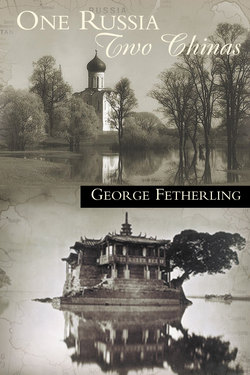One Russia, Two Chinas

Реклама. ООО «ЛитРес», ИНН: 7719571260.
Оглавление
George Fetherling. One Russia, Two Chinas
Отрывок из книги
ONE RUSSIA
TWO CHINAS
.....
Novosti is a difficult news agency to categorize. It was large, employing several thousand journalists to TASS’s several hundred, and in further distinction to TASS, which provided the official news from the party and the government, it was “public,” which the West usually interprets as meaning merely “semi-official.” It published informal books and slick pamphlets about every aspect of the Soviet Union in a variety of languages and responded to requests for customized stories from the overseas media. More important, it ran its own network of correspondents both domestically and worldwide, and acted as a clearing house, though not as a telegraphic news agency like TASS or Canadian Press. It was also the publisher of the important Moscow News, which was considered not just radical but sometimes quite fearless. Recently it had ventured into television as well. For example, it bought a regular 90 minutes of airtime from the state network for the broadcast of such programmes as the first-ever look inside KGB headquarters in Dzerzinsky Square. Its highly distinctive building in Zoubovski Boulevard, opening on a courtyard with terraced balconies, was also a communications centre from which Soviet figures and foreign heads of state addressed press conferences. “During the Moscow Olympics,” Bogdanov explained, sitting in a large meeting room with a bar, “this was full of TV monitors, and many distinguished sports journalists followed the various competitions from here, never venturing outside.” He pantomimed the chugging of alcoholic beverages and laughed wryly.
His colleague, Alexey Lipovetsky, was also part of the North American desk, which with 30 personnel was quite the smallest of Novosti’s branches. At 41 he was somewhat rumpled, with a drooping black moustache and a sly, cynical wit. Trained at the Moscow Institute for Foreign Languages to be a simultaneous translator, he was the agency’s specialist on Quebec and spoke English with a Québécois accent. He was the most experienced and productive kind of journalist, the sort you find a few of in the top ranks of the profession in every country: unstoppably curious, at ease with all types of people, and with a love of imparting all the accurate information he has at his fingertips but with a discriminating filter that automatically weeds out the patently false or illogical. We spent a good bit of time together, talking about, among other things, the press. More than a need for shop talk motivated my enquiries. It was clear that the press had become an engine of change as well as an instrument to measure it. One day we were walking through Gorky Park, very near where Alexey grew up. It was spring, but it seemed like an early autumn day; there were few people about, and the Ferris wheel and other amusements were silent.
.....